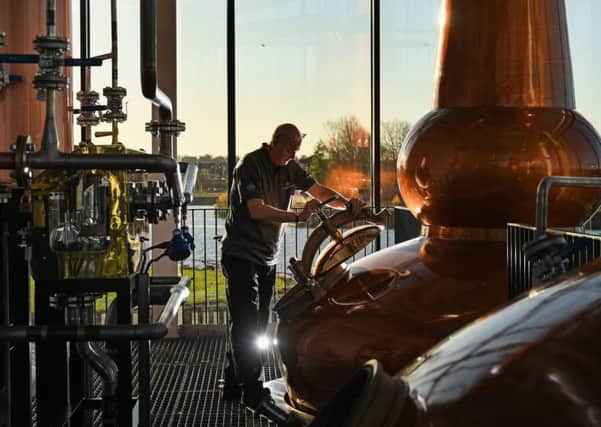Comment: Scottish food and drink is ripe for global export


Everything, including the salmon, would appear to be swimming in the right direction in the Scottish food and drink sector at the moment, as it continues to build on the wave of success generated by marketing campaigns designed to shine a light on the country’s great taste triumphs.
The annual Scotland Food & Drink “Showcasing Scotland” event is right around the corner, a chance to reflect on the strengths of the sector but also consider the opportunities we may be missing out on. Since its inception in 2014, the event has provided buyers from around the world with over £100 million worth of outstanding new Scottish produce, and the industry wants this figure to grow.
Advertisement
Hide AdAdvertisement
Hide AdThe drivers continue to be the products you would expect. In the first quarter, Scotland’s largest food export, salmon, was valued at £152m – up 27 per cent on the same period the year before. Scotch whisky accounts for 70 per cent of Scottish food and drink exports and is valued at £4.7 billion, with a direct workforce of over 10,500.
According to official statistics, there are around 18,850 food and drink businesses, employing more than 115,000 people in Scotland. The Scottish Government plans to grow the sector to £30bn by 2030 and double food exports to £3bn, this ambition will need to be matched by the producers, restaurants and chefs who have helped position Scotland as a food destination, by creating award winning experiences for visitors using local ingredients.
While the outlook is positive there are challenges on the horizon for the sector, not least the uncertainty around Brexit. This has the potential to impact everything from regulations and safety standards to shipping to product labels. The cost of producing smaller batches, more red tape and the production of labels unique to the destination market, are additional unwanted tasks. A no-deal scenario would no doubt create many headaches for food and drink manufacturers in the short term.
Despite these challenges, Scotland Food & Drink and the Scottish Tourism Alliance have worked to establish the Scottish market and we continue to see investment in the sector. For example, the rise in “urban whisky” has taken off over the past year, with distilleries opening in Edinburgh and Glasgow, and others under construction in Falkirk, Stirling, Dumfries and Galloway.
Of the untapped markets, India is thought to hold massive potential for whisky exports. It is the third biggest export market by volume for whisky, and the tenth by value, yet Scottish whisky only makes up 1 per cent of India’s spirits market. Last year, 112 million bottles of whisky were sold to India, compared to top-ranked France at 187 million bottles and second-placed US at 136 million.
Another market that could boost Scottish exports is Japan, which recently opened for beef and lamb imports. Japan is the world’s second biggest consumer of seafood and exports of Scottish salmon have risen four-fold in the last year.
BGF has already backed a number of food and drink companies since we were set up in 2011, investing more than £80m, and we are looking for more opportunities to support ambitious entrepreneurs to scale their businesses.
In 2017, we invested in Renegade, which has developed a whisky distillery on Ireland’s south-eastern coast. Renegade’s founders – Mark Reynier, Sir John Mactaggart and John Adams – are veterans of the drinks industry having previously acquired the disused Bruichladdich Distillery on Islay in 2002, before a £58m sale to Remy Cointreau in 2012. Today, the Irish distillery is producing large quantities of spirits and the team has broadened its horizons with plans to open a $20m (£16m) rum distillery in Grenada.
Advertisement
Hide AdAdvertisement
Hide AdScottish catering company Entier has also gone from strength to strength following a £6.5m investment from BGF. The business now operates in 23 countries including Australia, Canada, Singapore, Trinidad and Tobago and the US.
We have also made several investments in the hospitality sector, including £10m into Mission Mars, the Manchester operator behind hospitality concepts including Albert’s Schloss and Rudy’s Neapolitan Pizza. The business is aiming to open additional sites across the UK, and we’re continuing to back its impressive team.
What these companies have achieved was possible because they have taken opportunities when they arose and identified gaps in the marketplace. There are plenty of Scottish food and drink companies out there who could do the same.
There is no doubt Scotland has built a fantastic reputation for its produce, but now is not the time to sit back. It is only through continued investment and innovation that ambitious, local companies will be able to stay at the top table and grow their businesses to be future-fit and prosperous.